- Home
- James Rollins
Sigma Force 10 - The Sixth Extinction Page 3
Sigma Force 10 - The Sixth Extinction Read online
Page 3
“We don’t have jurisdiction to—”
“Sorry.” She bobbled the radio’s feed. “Can’t make out what you were saying, Bill.”
She ended the call and re-hooked the radio.
“I’m just saying . . . we came all the way out here, didn’t we, Nikko?”
So let’s see what all the fuss is about.
She pressed the accelerator and eased past the gate and headed toward a cluster of illuminated buildings crowning the shadowed hill ahead. The small installation appeared to be a handful of Quonset-style huts and hastily constructed concrete-block bunkers. She suspected those buildings were nothing more than the tip of a buried pyramid, especially from the number of satellite dishes and antenna arrays sprouting from those rooftops.
Nikko growled as a low thumping reached her.
She braked and instinctively punched off her headlights, respecting her own intuition as much as her dog’s.
From behind one of the Quonset huts, a small black helicopter rose into view, climbing high enough to find the last rays of the setting sun. She held her breath, hoping the sun’s glare and the shadows below the hill kept her hidden. What especially stood the hairs on the nape of her neck was the fact that she noted no insignia on the bird. Its sleek predatory black shape definitely didn’t look military.
She slowly let her breath out as the helicopter headed away from her position, whisking over the hills and vanishing from sight.
The squawk of the radio made her jump. She grabbed the handset.
“Jenna!” Bill sounded frantic. “Are you on your way back?”
She sighed. “Not yet. I thought I’d hang at the gate for a bit to see if anyone came out to say hello.”
It was a lie, but it was better than the truth.
“Then get the hell out of there!”
“Why?”
“I received another call, relayed through military command. It was radioed by someone at the site. Listen.” After a pause, a woman’s voice faintly came through, but there was no mistaking the panic and urgency. “This is sierra, victor, whiskey. There’s been a breach. Fail-safe initiated. No matter the outcome: Kill us . . . kill us all.”
Jenna stared toward the cluster of buildings—when the entire hilltop erupted into a cloud of fire and smoke. The ground under her bucked hard, bouncing and rattling the truck.
Oh my God . . .
After a hard swallow to get breathing again, she slammed the pickup into reverse and pounded the accelerator, sending the truck careening backward.
A wall of smoke billowed toward her.
Even in her desperation, she knew she must not let that cloud reach her. She remembered all those sheep killed outside of Dugway. Her caution proved wise when a moment later a jackrabbit burst from that pall, took a couple of bounding hops, then collapsed on its side in a writhing seizure.
“Hang on, Nikko!”
She couldn’t get enough speed in reverse, so she threw the truck into a fishtailing spin to right herself, sending gravel flying—then gunned the engine and tore past the open gate. In her rearview mirrors, she watched the cloud pursuing her.
Something black slammed into her truck’s hood, making her gasp.
A crow.
Raven-dark wings fluttered as it rolled away.
More birds crashed into the brush to either side of the road, falling dead out of the sky.
Nikko whimpered.
She felt like doing the same, but all she could truly hear were that poor woman’s last words.
Kill us . . . kill us all . . .
2
April 27, 8:05 P.M. PDT
Santa Barbara, California
I am a lucky man . . .
Painter Crowe stared at his fiancée silhouetted against the fading blaze of the sunset over the Pacific. She stood at the edge of a bluff overlooking a stretch of sandy shore, staring out toward Rincon Point, where a few surfers still braved the day’s last waves. From the beach directly below came the faint honking of harbor seals, their nesting area off-limits to tourists during the breeding season.
His fiancée, Lisa Cummings, surveyed the landscape through a set of binoculars. From his vantage behind her, Painter examined her in turn. She wore a yellow bikini covered by a thin cotton wrap belted at the waist. The sheer fabric allowed him to appreciate the curve of her backside, the angle of her hip, the length of her leg.
From his vantage, he came to a definitive conclusion.
I’m the luckiest man in the whole world.
Lisa interrupted his reverie, pointing below. “This beach is where I conducted research for my doctoral thesis. I was testing the diving physiology of harbor seals. You should’ve seen the pups . . . so cute. I spent weeks tagging the older ones with pulse ox sensors, so I could study their adaptation to deep-sea diving. The corollary to human respiration, oxygen saturation, endurance and stamina—”
Painter stepped to her side and scooped an arm intimately around her waist. “You know we could do our own research on endurance and stamina back at the hotel room.”
She lowered the binoculars and smiled at him, using a pinkie to whisk a few windblown strands of blond hair. She arched an eyebrow at him. “I think we’ve done plenty of that research already.”
“Still, you can never be too thorough.”
She turned into him, pressing against him. “You may be right.” She kissed him lightly on the lips, lingering there for a moment, then broke loose of their embrace. “But it’s late, and we do have to meet the caterer in an hour and arrange the final menu for the rehearsal dinner.”
He sighed heavily, watching the sun fade completely away. The wedding was in four days. It was going to be a small affair officiated on a local beach, attended by their closest friends and family, with a reception afterward at the Four Seasons Biltmore in Montecito. Yet, as that fateful day grew closer, the list of details only seemed to grow longer. To escape the chaos for a few hours, the two had taken a late afternoon walk along the Carpinteria Bluffs overlooking the Pacific, strolling across open meadows dotted with towering eucalyptus trees.
It was such moments that also allowed Painter to learn more intimate details about Lisa’s childhood, about her roots out west here. He’d already known how she had grown up in Southern California and graduated from UCLA, but to experience her in her own element—reminiscing, telling stories, simply basking under her native sun—made him love her all the more.
How could he not?
From her long blond hair to the smoothest skin that bronzed with the lightest touch of the sun, she was the epitome of the Golden State. Still, only the most foolhardy would assume her looks were the extent of her assets. Behind that beauty was a mind that outshone all. Not only had she graduated top of her class from UCLA’s med school, but she had also earned a PhD in human physiology.
With such a connection out west, they had chosen Santa Barbara as the location for their wedding. Though the two of them now made their home on the opposite coast—in Washington, D.C.—a majority of Lisa’s friends and family were still out here. So shifting the venue to California only made sense, especially as Painter had no real family of his own. He had been orphaned at a young age and mostly distanced from the Native American side of his family; his only blood relative was a distant niece, and she was going to school at Brigham Young in Utah.
That left only a handful of guests who would need to make the cross-country trek, namely Painter’s innermost circle at Sigma Force. Not that such a journey was without hardship for those few. The group’s lead field commander, Grayson Pierce, had a father slipping further into the mental fog of Alzheimer’s, and—
“Did I tell you I heard from Kat this morning?” Lisa asked, as if reading his mind.
He shook his head.
“She managed to find someone to watch the girls. You should have heard the relief in her voice. I don’t think she was looking forward to such a long flight with two young children in tow.”
He grinned as they head
ed back across the darkening bluffs. “I also suspect Kat and Monk could use a vacation from diapers and midnight feedings.”
Kathryn Bryant was Sigma’s chief intelligence expert, and Painter’s second-in-command, his proverbial right arm. Her husband, Monk Kokkalis, was a fellow Sigma operative, trained in forensic medicine and biotechnology.
“Speaking of diapers and midnight bottles . . .” Lisa leaned into him, entwining her fingers with his. “Maybe that’s a chore we’ll soon be complaining about.”
“Maybe.”
From her slight sigh, she must have heard the hesitation in his voice. They had, of course, spoken of having children, of starting a family. But dreaming was different from staring that reality full in the face.
Her hand slipped from his grasp. “Painter—”
A sharp and insistent bleat from his phone cut her off, saving him from any explanation—which was a good thing because he couldn’t explain his reluctance even to himself. His back stiffened at the distinctive ringtone. Lisa didn’t object as he answered, knowing that particular chime sounded only in the case of an emergency.
Painter lifted the phone to his ear. “Crowe here.”
“Director.” It was Kat Bryant. “We’ve got trouble.”
For his second-in-command to be calling him now, it had to be big trouble. Then again, when did Sigma ever deal with small problems? As a covert wing for DARPA—the military’s Defense Advanced Research Projects Agency—Sigma Force dealt with global threats of a scientific or technological nature. As director of the group, Painter had gathered a select group of Special Forces soldiers from across the different branches of service and retrained them in various scientific disciplines to act as field operatives for DARPA. If a problem landed in Sigma’s lap, it was seldom a minor concern.
While normally such an urgent call would set him on edge, he could not discount the relief he felt, welcoming the distraction. If I have to taste another piece of wedding cake or decide which centerpiece to go with which table at the reception . . .
“What’s wrong?” he asked Kat, bracing himself for the answer.
8:09 P.M.
“No, no, no!”
Jenna pounded the truck’s brakes, throwing her hard into the seat belt’s shoulder strap. Nikko tumbled off the seat next to her. As the husky scrambled back up, she stared into the rearview mirror.
The world behind her had become a smoky black wall, rolling relentlessly down from the highlands above. She had to get out of its path, but the road ahead turned in a hard hairpin, zigzagging down toward the distant basin of Mono Lake. To take that switchback would send them driving back toward the poisonous smoke. Twisting in her seat, she followed the curve of the road and saw the way did indeed lead back into that roiling cloud.
Despite the early evening chill, she wiped sweat from her brow.
Nikko studied her, trusting her to get them to safety.
But where?
She flipped on her high beams and studied the switchback ahead. She noted a faint pair of tire tracks aiming away from the gravel road and out into the open terrain of sagebrush and scrubby pinyon pines. She didn’t know where that thin track led. Certainly tourists and local teenagers often made their own illegal paths, camping in neighboring box canyons or building bonfires beside creeks. Heaven knows, she had chased plenty of them off herself in her role as park ranger.
With no other choice, she gunned the engine and sped to the switchback. She bumped the truck over the shoulder and onto the thin off-road trail. She raced along the rutted track, rattling every nut and bolt in the Ford. Nikko panted beside her, his ears tall, his eyes everywhere.
“Hang on there, buddy.”
The terrain grew more rugged, requiring her to reduce her speed. Despite the urgency, she couldn’t risk breaking an axle or ripping a tire on one of the razor-edged boulders. Her gaze twitched constantly to the rearview mirror. Behind her, the pall of smoke swallowed the moon.
She found herself holding her breath, fearing what was coming.
The path began to climb, cresting toward the top of another hill. Her progress slowed to a treacherous crawl. She cursed her luck and considered abandoning the trail, but by now the surroundings had turned even rockier. No direction looked better than the one she was following.
Committed now, she pushed harder on the accelerator, testing the extremes of the truck’s four-wheel drive system. Finally the slope evened out again. Taking advantage, she sped recklessly around a bend in the trail, clearing a shoulder of the hill—only to have the beams of her headlights splash across an old rockslide that cut directly across the trail.
She braked hard, but the pickup skidded on loose sand and rock. Her front bumper smashed into the closest boulder. The airbag deployed, slamming her in the face like a swinging bag of cement. It knocked the breath from her. Her head rang, but not loud enough for her to miss hearing the engine cough and die.
As her eyes filled with pained tears, she tasted blood from a split lip. “Nikko . . .”
The husky had kept his seat, looking no worse for the impact.
“C’mon.”
She shoved her door open and half fell out of her seat to the ground. She stood on shaky legs. The air smelled burnt and oily.
Are we already too late?
She turned toward the smoke and pictured the jackrabbit bounding out of that pall and writhing to death. She took a few steps—unsteady for sure, but not from poison. Simply dazed. Or at least she prayed that was the reason.
“Just keep moving,” she ordered herself.
Nikko joined her, dancing on his paws, his thick tail a waving flag of determination.
Behind them, the solid wall of smoke had grown ragged and wispy-edged. Still, it continued to fall toward her like an engulfing wave. She knew she’d never outrun it on foot.
She stared toward the top of the hill.
Her only hope.
She retrieved a flashlight from her truck and quickly headed upward. She picked a path through the rockslide, whistling for Nikko to stay close. Once through, she discovered a rolling meadow of bitterbrush and prickly phlox. The open terrain allowed her to move faster. She sprinted toward the crest of the hill, following the bouncing beam of her flashlight, climbing ever higher.
But was the hill high enough?
Gasping, she forced her legs to pump harder. Nikko raced silently alongside her, ignoring the occasional burst of a nesting sage sparrow or the bound of a black-tailed jackrabbit.
At last they reached the summit. Only then did she risk a glance over her shoulder. She watched that towering wave of smoke break against the shoal of the tall hill and spread outward, filling the lower valleys all around, turning the hilltop into an island within a poisonous sea.
But how long would this refuge remain safe?
She fled farther away from that deadly shore, toward the highest crown of the hill. Near the top, sharp-edged silhouettes cut against the stars, marking the dilapidated remains of an old ghost town. She counted maybe a dozen barns and buildings. Gold-rush-era outposts like this dotted the local hills, most forgotten and unmapped—with the exception of the nearby town of Bodie, a larger ghost town that stood as the centerpiece of Bodie State Historic Park.
Still, she hurried gladly toward that meager shelter, taking strength from the stubbornly standing walls and roofs. As she neared the closest structure, she pulled out her cell phone, hoping she was high enough to get a signal. With her truck’s radio drowned in that toxic sea, her cell phone was the only means of communication.
With great relief, she noted a single glowing bar of signal strength.
Not great, but I’m not complaining.
She dialed the dispatch office. The line was quickly picked up by a breathless Bill Howard.
Though the connection was dodgy, she heard the relief in her friend’s voice. “Jen, are you o . . . ay?”
“I’m banged up little, but I’m okay.”
“What’s . . . banged up?”
She tried to explain about the explosion, but the spotty signal made communication difficult.
“You need to evacuate Lee Vining,” she said, almost shouting. “Also any of the area’s campsites.”
“I didn’t . . . et that. What’s that about an evacuation?”
She closed her eyes, exasperated. She took a couple of breaths.
Maybe if I get on the roof of one of these barns, I could get a better signal.
Before she could consider the best course, a low thumping sounded. At first she thought it was her own heart pounding in her ears. Then Nikko whined, hearing it too. As the noise grew louder, she searched the skies and spotted a blip of navigation lights.
A helicopter.
She knew it was too soon for Bill to have sent up a search-and-rescue team. With her nerves jangling a warning, she flicked off her flashlight and rushed toward the shelter of the ghost town. Reaching the outskirts, she ducked alongside an old barn as a helicopter crested into view.
She recognized the sleek black shape of the aircraft. It was the same bird she had seen lifting off from the military base just prior to the explosion.
Had they caught sight of my truck racing away from the blast zone and doubled back? But why?
Not knowing for sure, she kept out of sight. Reaching the gaping barn door, she hurried inside with Nikko. She rushed across the dark confines, halting only long enough to check her phone.
Her call to Bill had dropped, and the screen now showed no bars.
She was cut off, on her own.
Reaching the far side of the barn, she peered carefully out through the broken glass of a window. The helicopter lowered toward a meadow on that side. Once the skids were close enough to the ground, men in black uniforms bailed out on both sides. The rotor wash of the helicopter pounded the scrub brush around them.
Her heart thundered in her throat as she noted the shouldered rifles.
This was no rescue party.
She touched her only weapon, holstered at her hip. A taser. By law, California Park Rangers could carry firearms, but it was mostly discouraged when assisting with tours like today.

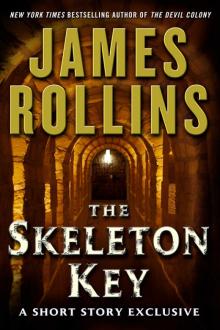 The Skeleton Key
The Skeleton Key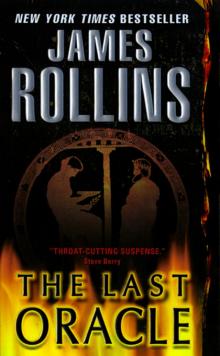 The Last Oracle
The Last Oracle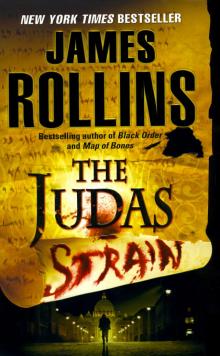 The Judas Strain
The Judas Strain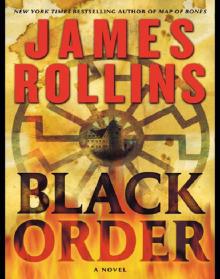 Black Order
Black Order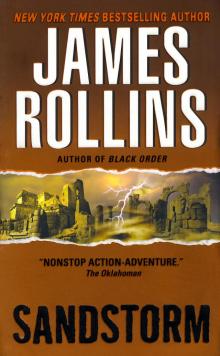 Sandstorm
Sandstorm Ghost Ship
Ghost Ship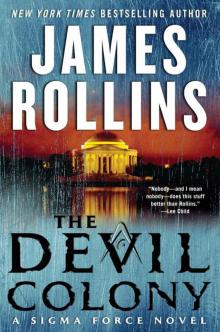 The Devil Colony
The Devil Colony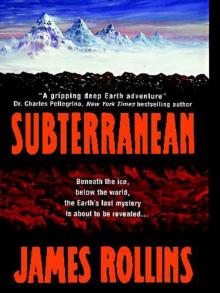 Subterranean
Subterranean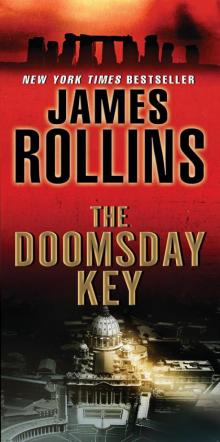 The Doomsday Key
The Doomsday Key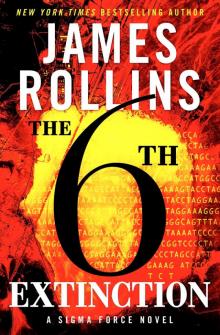 The 6th Extinction
The 6th Extinction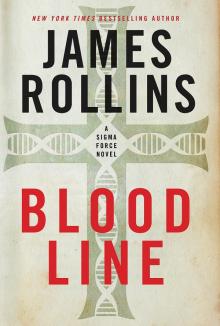 Bloodline
Bloodline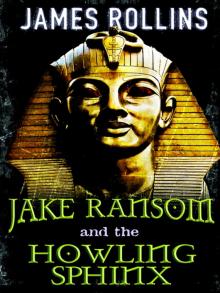 Jake Ransom and the Howling Sphinx
Jake Ransom and the Howling Sphinx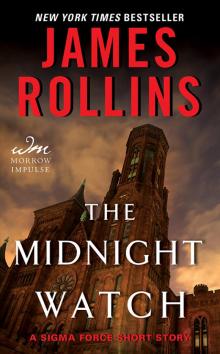 The Midnight Watch
The Midnight Watch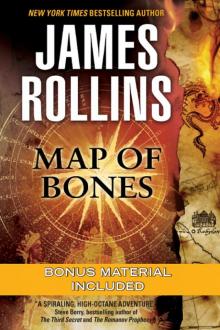 Map of Bones
Map of Bones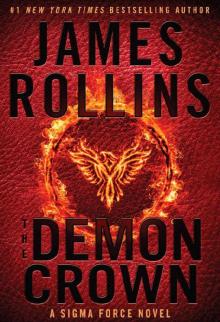 The Demon Crown
The Demon Crown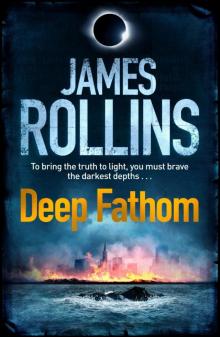 Deep Fathom
Deep Fathom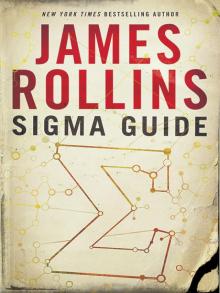 Sigma Guide
Sigma Guide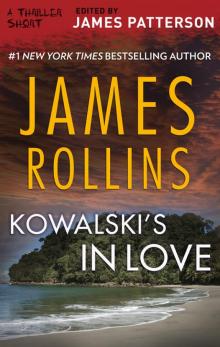 Kowalski's in Love
Kowalski's in Love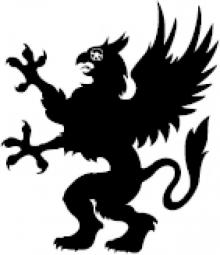 Jake Ransom and the Skull King's Shadow
Jake Ransom and the Skull King's Shadow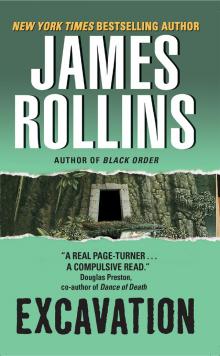 Excavation
Excavation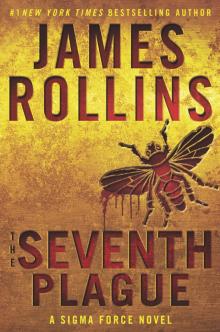 The Seventh Plague
The Seventh Plague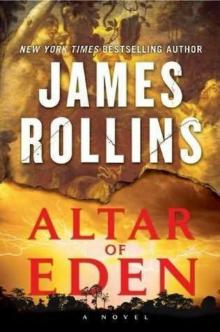 Altar of Eden
Altar of Eden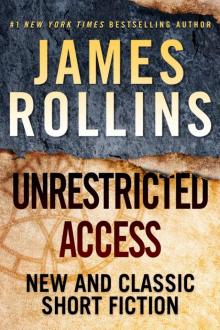 Unrestricted Access: New and Classic Short Fiction
Unrestricted Access: New and Classic Short Fiction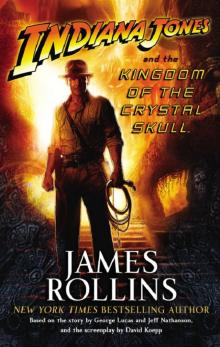 Indiana Jones and the Kingdom of the Crystal Skull
Indiana Jones and the Kingdom of the Crystal Skull Crucible
Crucible The Eye of God
The Eye of God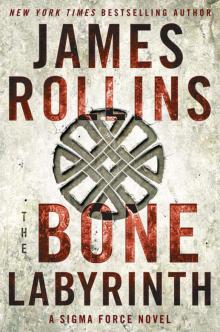 The Bone Labyrinth
The Bone Labyrinth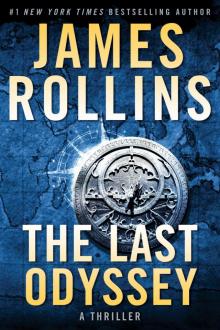 The Last Odyssey: A Thriller
The Last Odyssey: A Thriller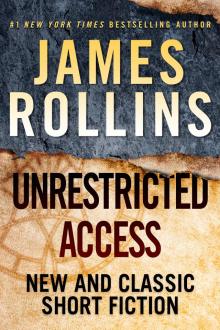 Unrestricted Access
Unrestricted Access Amazonia
Amazonia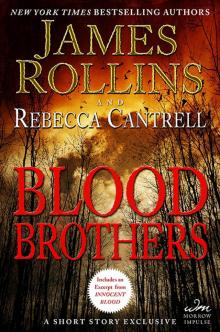 Blood Brothers: A Short Story Exclusive
Blood Brothers: A Short Story Exclusive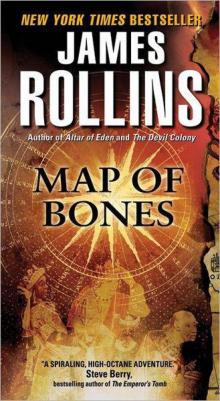 Map of Bones: A Sigma Force Novel
Map of Bones: A Sigma Force Novel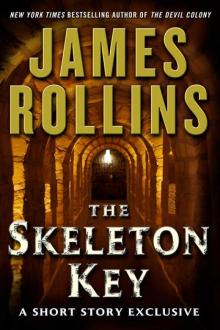 The Skeleton Key (sigma force)
The Skeleton Key (sigma force)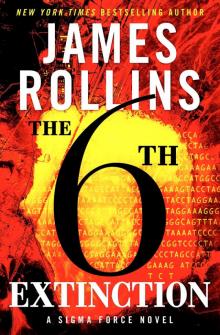 Sigma Force 10 - The Sixth Extinction
Sigma Force 10 - The Sixth Extinction Innocent Blood
Innocent Blood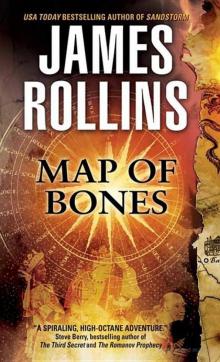 Map of Bones sf-2
Map of Bones sf-2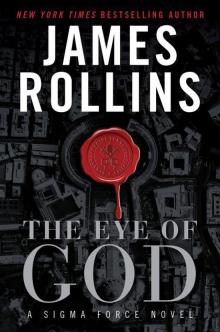 The Eye of God: A Sigma Force Novel
The Eye of God: A Sigma Force Novel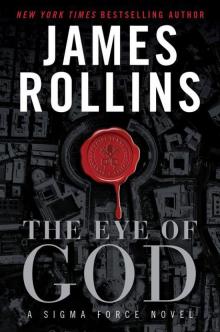 The Eye of God: A Sigma Force Novel sf-9
The Eye of God: A Sigma Force Novel sf-9 The Pit
The Pit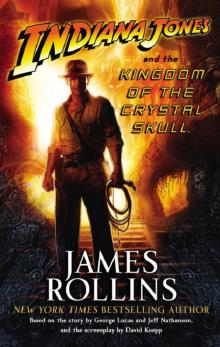 Indiana Jones and the The Kingdom Of The Crystal Skull
Indiana Jones and the The Kingdom Of The Crystal Skull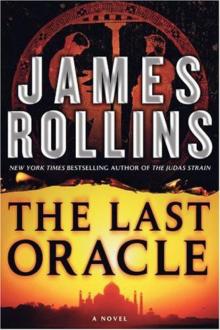 The Last Oracle (2008) sf-5
The Last Oracle (2008) sf-5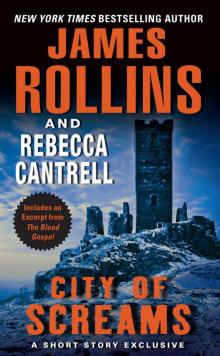 City of Screams
City of Screams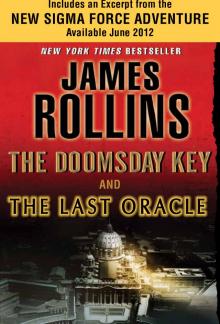 The Doomsday Key and The Last Oracle with Bonus Excerpts
The Doomsday Key and The Last Oracle with Bonus Excerpts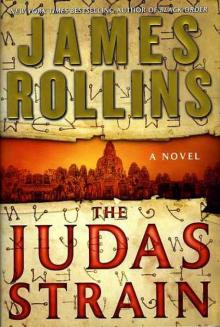 The Judas Strain sf-4
The Judas Strain sf-4 Blood Infernal
Blood Infernal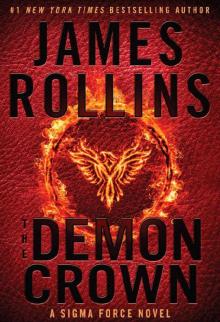 The Demon Crown: A Sigma Force Novel
The Demon Crown: A Sigma Force Novel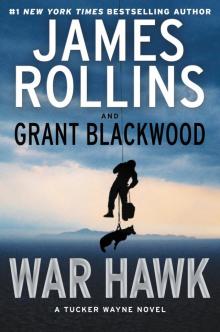 War Hawk: A Tucker Wayne Novel
War Hawk: A Tucker Wayne Novel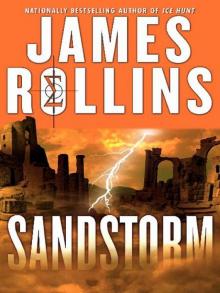 SANDSTORM sf-1
SANDSTORM sf-1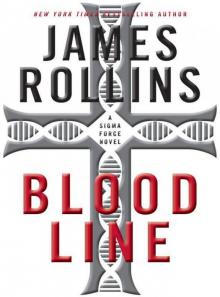 Bloodline: A Sigma Force Novel
Bloodline: A Sigma Force Novel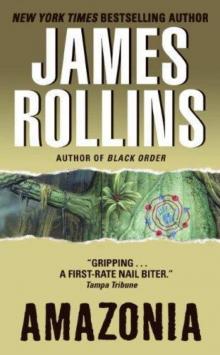 Amazonia: a novel
Amazonia: a novel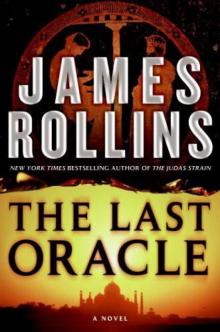 The Last Oracle: A Sigma Force Novel
The Last Oracle: A Sigma Force Novel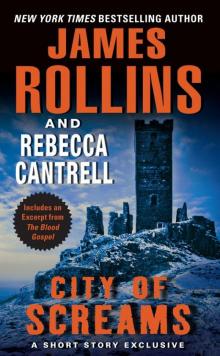 City of Screams (the order of the sanguines)
City of Screams (the order of the sanguines) Ghost Ship: A Sigma Force Short Story
Ghost Ship: A Sigma Force Short Story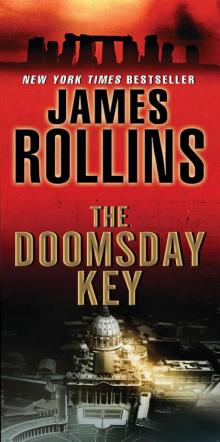 The Doomsday Key: A Sigma Force Novel
The Doomsday Key: A Sigma Force Novel